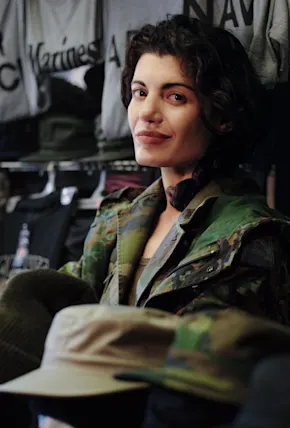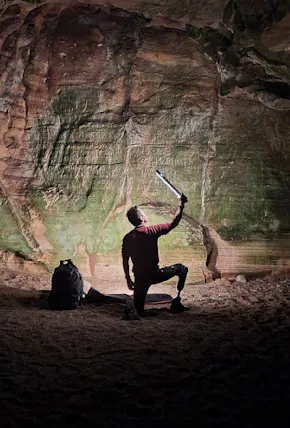Situated just south of Kinshasa, the capital of the Democratic Republic of Congo is, Kikwit, hometown of Judith Kasiama. It was there where Judith spent her early years watching her community integrate the natural world into their everyday lives, through agriculture and as a source for food and water. For Judith, the surrounding rainforest was a place to feel her own freedom as she explored with natural wonder. Then the Great War of Africa arrived, forcing Kasiama's mother to make the tough decision to pack up her four chidlren and flee everything they knew and loved.
Now an adult in Canada, Kasiama has channeled her love of the outdoors and longing for a new community, like the one she knew as a youth, into founding Colour the Trails, a grassroots organization that provides a starting point for BIPOC, LGBTQIA members, and allies interested in outdoor activities such as hiking, biking, climbing, and kayaking in places where they otherwise might feel unwelcomed.
Once a refugee, Kasiama has seen war, and experienced homelessness. She has lived some of our greatest fears. Yet, she stands today, passionate to give back and cultivate a new community in North America as we've never seen. In creating a space for Black and brown folk to explore the outdoors —Colour the Trails now has three chapters across Canada and the U.S.—she has helped secure a seat at the campfire for more diverse voices.

To learn more about Colour the Trails, her experience straddling an identity of being both Congolese and Canadian, and just how difficult it is to start a community from the ground up, we recently spoke with Kasiama over zoom. The following is a condensed form of that conversation.
What are your first memories of being outdoors?
I had a lot of opportunities growing up in DRC. I spent a lot of time with my grandparents and had total freedom to explore, to be honest. Whether it was exploring a our jungles or watching our families farm and do agricultural work, I was always exposed to nature. It was very much all encompassing.
I wasn't sheltered—I was very much let loose to do stuff in nature and be outside and play and then just come home before dark. That was basically my childhood growing up there.
With chapters in British Columbia, Alberta, and Colorado, Colour the Trails seems to really be taking root. Tell us more about that.
I'm finding Colour the Trails is growing. It's just about exciting people to be able to create community. The whole purpose with Colour the Trails and with all these chapters is to get a community of people to come together and just spend time together and go outside and enjoy nature. That's how it started in Vancouver—I was inviting people to come hiking with me.












